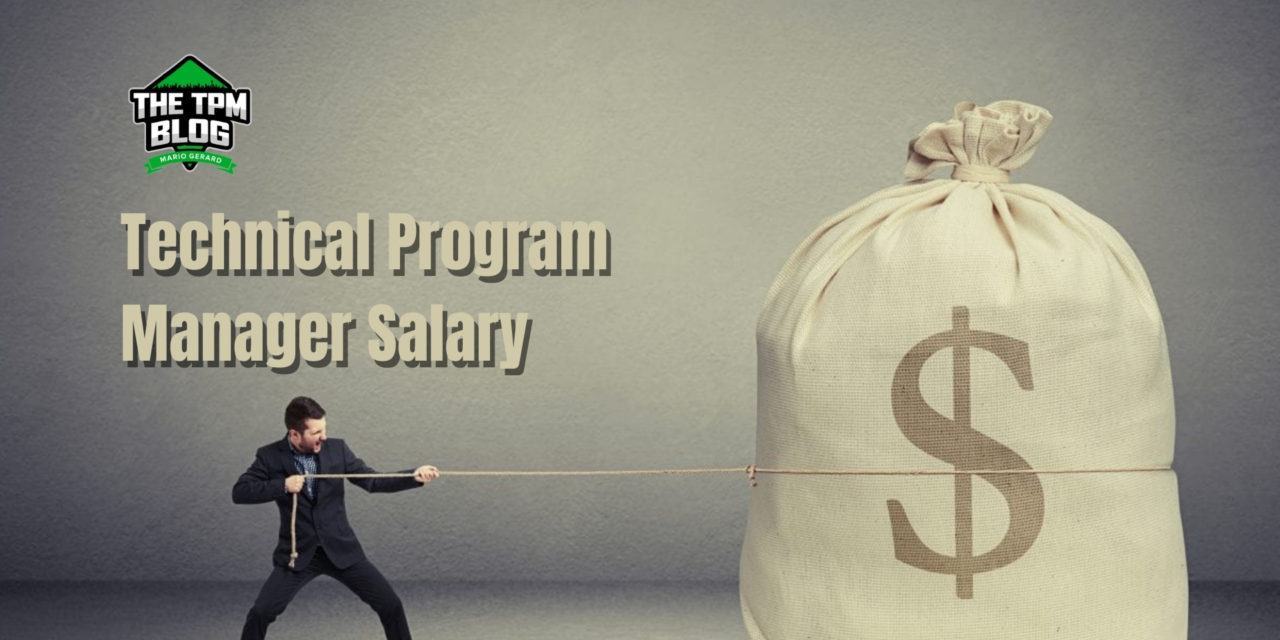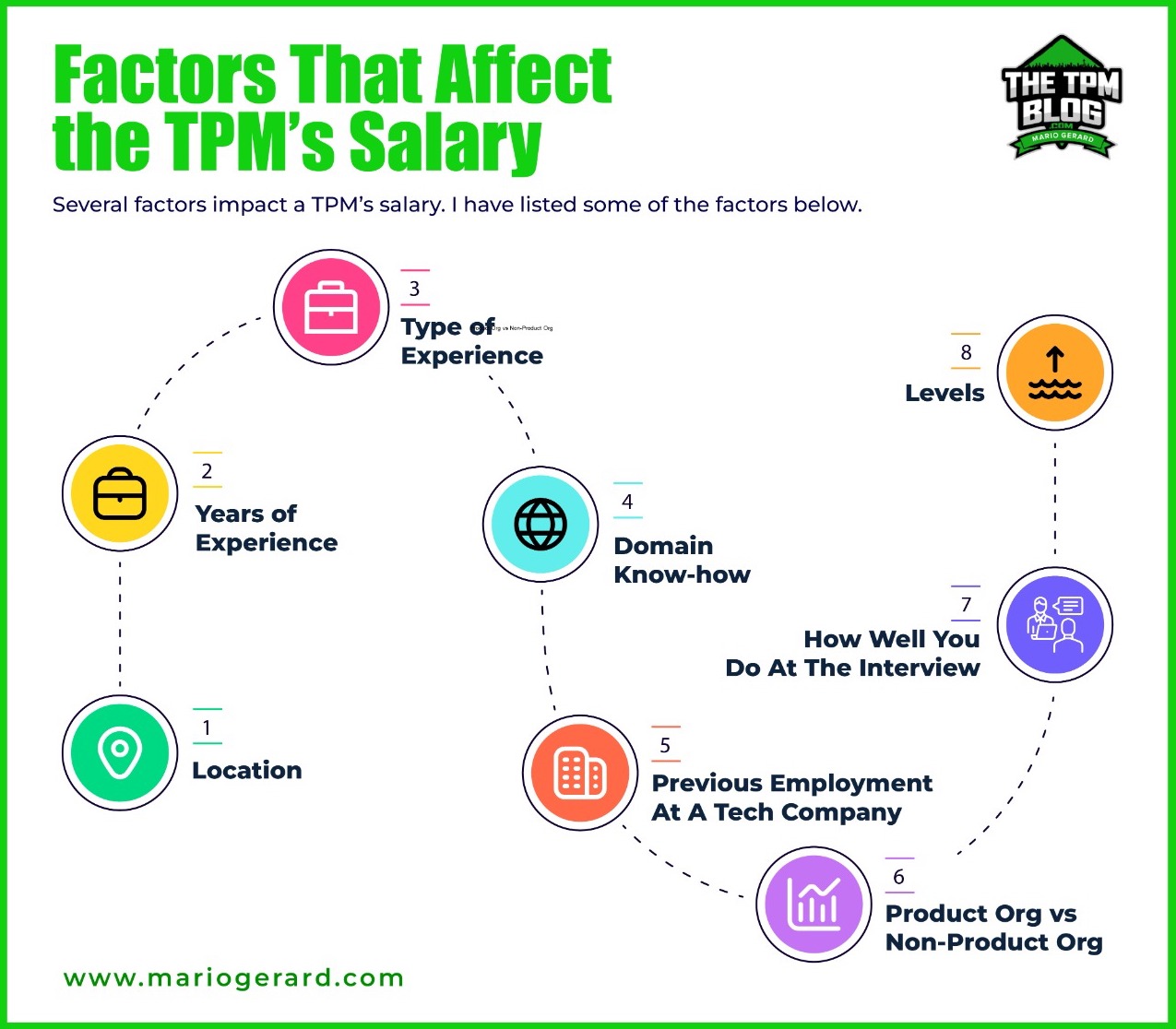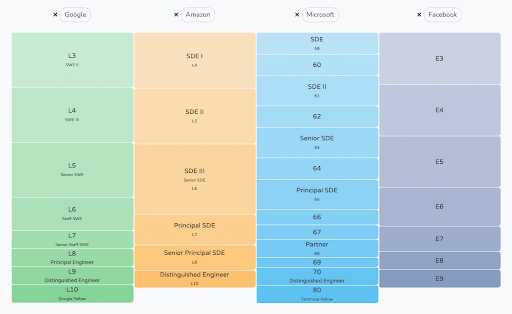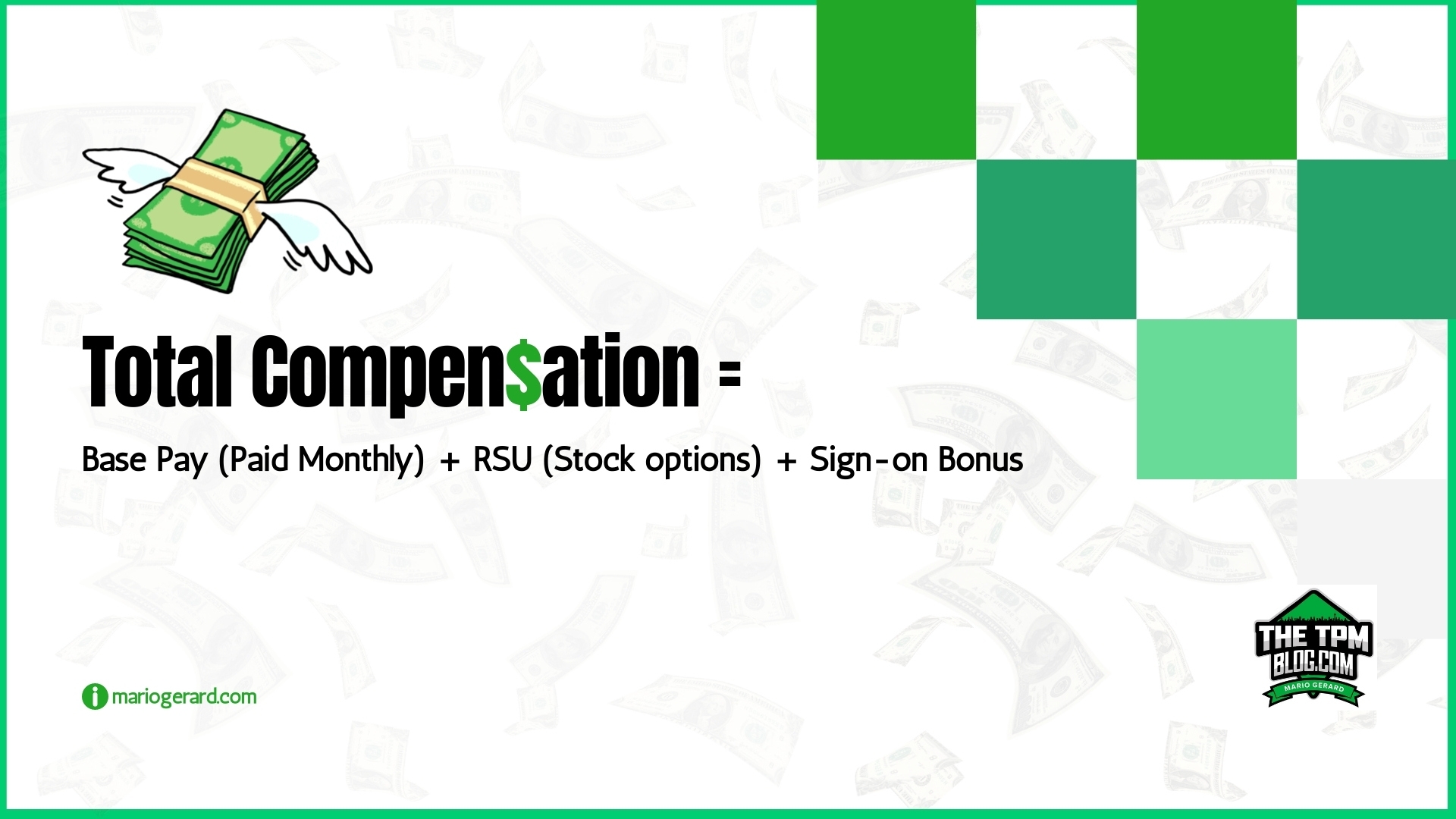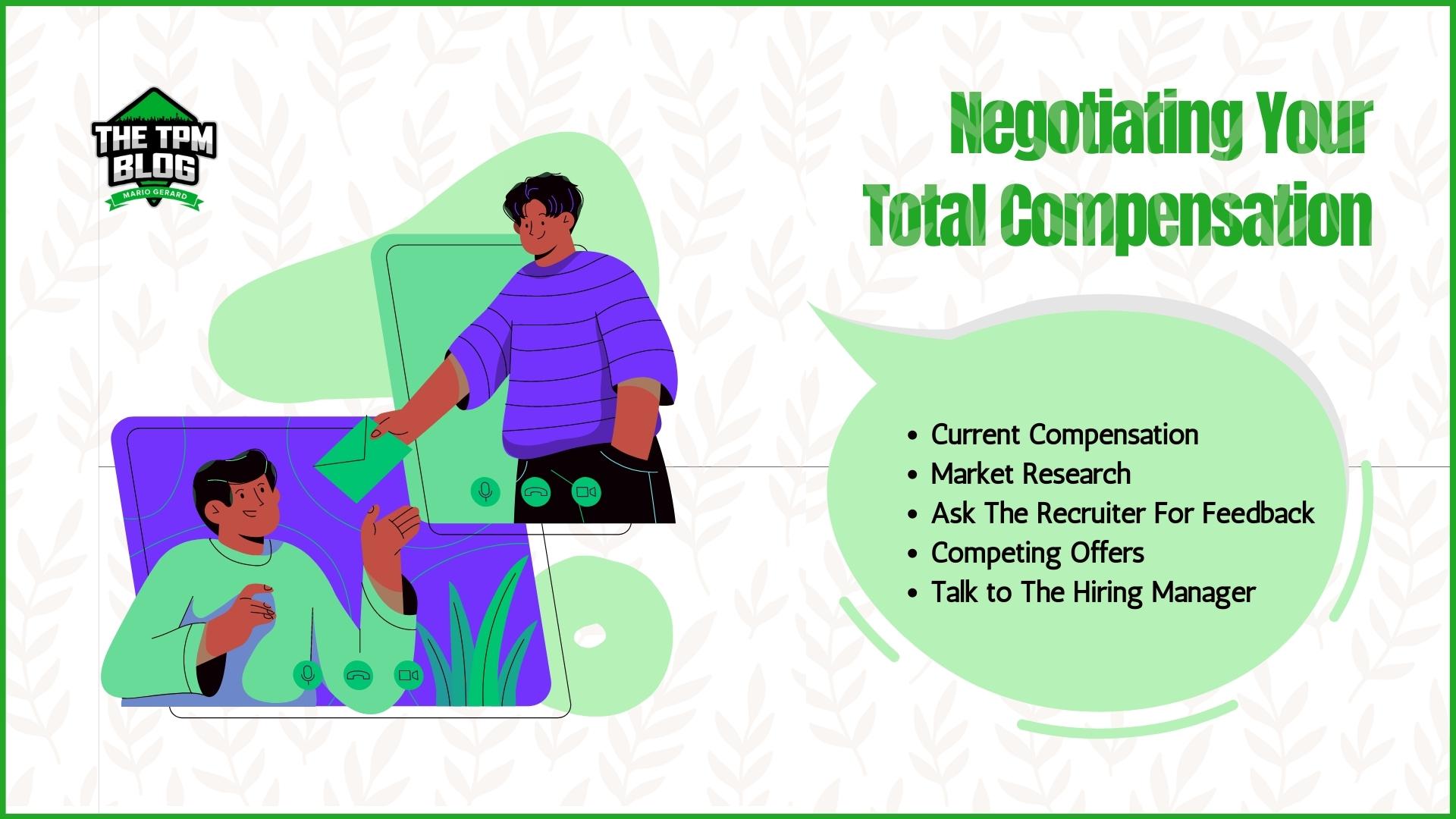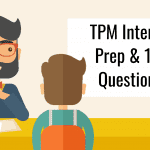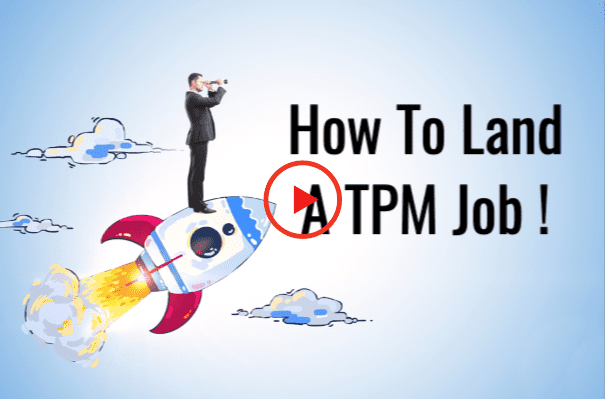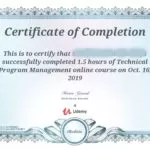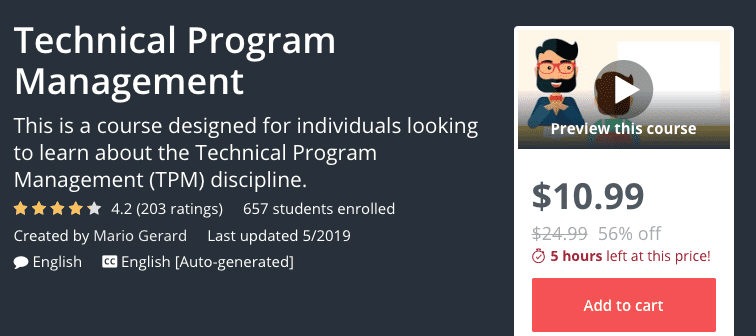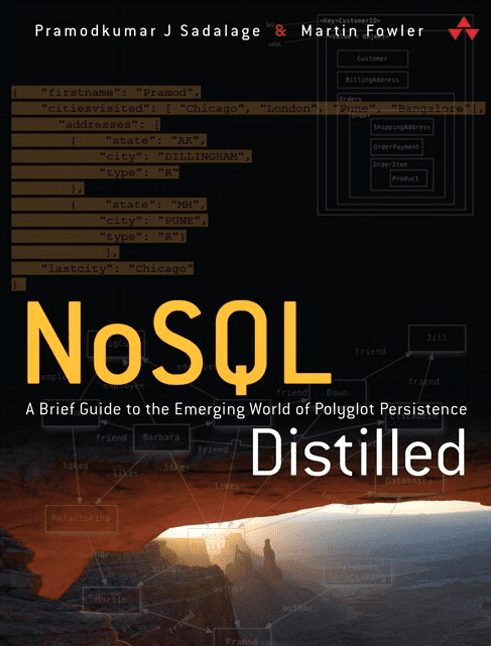Last updated on November 3rd, 2023 at 06:39 am
The average salary for a technical program manager is $250,000 if you are entering a bigger product-based company without a lot of experience. If you are more experienced, you should be able to reach anywhere from $300,000 to $650,000 as an individual contributor.
Trying to gauge the accurate salary of a Technical Program Manager (TPM) is complex. There are many variables at play. In this post, I intend to give you several data points to help you decide if your new offer is a good one. Also, note that this post is largely written for individuals who are new to the tech industry. I will take you through the fundamental questions I once had while deciphering my first tech salary.
An Overview of what we will cover in this article
My goal here is to help you understand the factors that influence your value and give you the right tools to negotiate your salary.
Factors That Affect the TPM’s Salary
Several factors impact a TPM’s salary. I have listed some of the factors below-
1. Location
Location always makes a difference in pay, whatever the opportunity might be. It is interesting to note that there is not much information on TPM salaries in India and Europe, even though there are many TPM opportunities in these regions.
Within the United States, there is a difference in salary because the cost of living differs across various cities. An online cost of living calculator could help you understand the differences in costs across cities. This would be a key factor if you are looking to move.
Though there have been a lot of organizations that are moving to a more remote-first environment, it is hard to say if one will have the same opportunities as the other. If you are located in Seattle vs. Orlando, for example. Time will tell.
Table 1
| Median | 75th Percentile | 90th Percentile | Top Hiring Companies | |
|---|---|---|---|---|
| SFO | $215,000 | $300,000 | $426,000 | Coinbase, Facebook, Lyft, Airbnb, Stripe |
| Seattle | 240,000 | $320,000 | $400,000 | Facebook, Apple, Google, Oracle, Microsoft, Amazon |
| New York City | $208,000 | $282,000 | $348,000 | Facebook, Google, Amazon, Microsoft, JPMorgan Chase |
Observations: I am baffled that the SFO numbers are lower than Seattle’s. This might be an anomaly.
Title: Generic TPM Salary Across Cities
Source: Levels.fyi
2. Years of Experience
Well, the number of years of experience always plays an important dimension, no matter the role. However, when you are a TPM, what comes to the forefront is your experience in program management and your technical capability. You can check our detailed post on senior program managers salary.
At your interviews, you will be evaluated on your capabilities and the complexity of your past work. In a nutshell, a lot of weight is not given to the number of years of experience you have but more to the type and the scale of problems you have solved. Your impact and the scope you have previously handled are what matter.
Evaluate yourself on these criteria.
3. Type of Experience
It matters if you have already been a TPM, a Program Manager, Developer, SDET or a Product Manager. More importantly, what matters is the type of experience you can easily translate into what TPMs do. If you are new to the role, read this and listen to the podcasts that should give you a lot of insights.
4. Domain Know-how
There are several instances where a TPM gets paid a premium. Generally, they are bringing something to the table that is in some way or form scarce in the market. I have seen instances of a budding eCommerce startup paying a lot higher than the market for a TPM who has spent the last decade solving the same problem they are trying to solve. There have been other instances where we paid significantly more for someone who had security clearance. You get the idea. If you are a domain expert or have something that you are extremely skilled at, try your best to showcase it during your interview.
5. Previous Employment At A Tech Company
Yes, if you have worked as a TPM in any of the top tech companies or even in an upcoming startup, you will likely get points for that. You will likely get more calls and also get a premium salary.
If you have not worked at a large tech/product-based organization or a startup, there is a high likelihood of you being put into a mid-level role, or of even being down-leveled.
6. Product Company vs Non-Product Organization
Though there are many organizations hiring TPMs now, the organizations that generally pay more are the product-based organizations that have grown beyond being a startup.
7. How Well You Do At The Interview
The most important of all these factors is, of course, how well one does at the interview. How well you do not only determines the offer you get, but also influences the level that the hiring organization would like to bring you into.
If you are an experienced TPM, in most cases, what matters is not whether you receive an offer, but the level at which the hiring organization would like to hire you.
8. Levels
As mentioned earlier, level determination is a key factor in indicating the salary offered to the individual.
Examples of generic entry-level TPM roles are given below. When I say entry-level, this would be someone who has anywhere from 3 years to 15 years of experience working in IT as a project manager/development manager/ delivery manager, but who does not have direct experience as a TPM yet.
| Organization | Level |
|---|---|
| Amazon | L6 |
| Microsoft | 63 / 64 |
| L5 / L6 | |
| E5 |
Also, it is quite common for tech companies to downlevel you. This happens when the team advertises for an L6 position and, post-interview, decides to hire you a step below the original level you are currently operating at. When I started out, I was perplexed on why tech organizations down level.
The other factor is that tech organization what you to come in and hit the ground running and want to set you up for success. It’s easier to move you up a level once you are exceeding performing at your current level.
Here is the chart from Levels.fi on how levels overlap-
Source: Levels.fi Level Comparison
Data Points
There are three data sources used here.
- Levels.yi
- TPMs Salary Sharing (Add to this)
- Blind/Discord/Mario’s1-1 Consults
| Organizations | ||||
|---|---|---|---|---|
| Data Sources | Amazon | Meta | Microsoft | |
| Levels.yi | $210,000 | $261,000 | $351,000 | $223,000 |
| TPMs Salary Sharing (Add to this) | $310,000 | $318,000 | $489,000 | $212,000 |
| Blind/Discord/Mario’s1-1 Consults | $355,000 | $330,000 | $345,000 | $323,000 |
| Average | $291,667 | $303,000 | $395,000 | $252,667 |
Title: Median Salary Ranges For An Entry Level TPM
Note: Location-Seattle
As you can see, the salary information from Amazon, Meta, Google and Microsoft do vary a lot across data sources. This gives you an idea that there are several factors that influence the salary, as discussed above.
In my experience, I would say, if you are entering a bigger product-based company without a lot of experience, you should expect around $250,000.
If you are more experienced, it varies on the factors mentioned above, but you should be able to reach anywhere from $300,000 to $650,000 as an individual contributor. This would also be in line with managers managing a team of TPMs.
Understanding Your Total Compensation
All tech companies have what we call:
Total Compensation = Base Pay (Paid Monthly) + RSU (Stock options) + Sign-on Bonus
The benefits also play a part in your total compensation but we will not be covering that here. Benefits include Health Insurance, 401k Matching, Vacation Policy, Relocation, Transportation Allowance, Food, other perks, etc.
Base Pay: This is straightforward as it is paid every month or twice a month, depending on the organization.
Sign-on- Bonus: This is quite a variable number, and is dependent on several factors. These factors are a) how difficult it is to find a similar candidate, b) how urgently they need you, and c) in some instances, how much % of stock a candidate is giving up at their current place of employment in order to join the new organization. This is more to sweeten the pot and to provide the candidate with an incentive to choose said employer.
Sometimes, sign-on bonuses are given over two years. Say you get a sign-on of 50k, you might receive 25k this year and 25k the next.
Sign-on bonuses also generally contain a clause stipulating that if you leave the organization within the first year, you are obliged to pay it back.
On another note, suppose you have a TC of 300k, and 100k of that is the sign-on bonus, you get the 100k over a two-year period. Subsequently, your third-year salary is going to be 200k unless your manager decides that the organization can increase your RSUs or your base salary.
RSU: These are generally stock units given to the employee over a set period. For example, if you are given 100 units of stock, they will be split over a 4 year period, where you get 25 stock units every year.
However, there are three different variations here:
- Stock Units Offered in Dollars instead of Units: If each stock unit offered is of a $10 value and you are given 100 units of stock, then your stock compensation would then be $1000. This means that instead of 100 units of stock, they will give you stock worth $1000. What you have to understand is that, in this situation, you do not have an upside or downside when the stock fluctuates i.e whether the stock goes up or down, you will be given stock worth $1000. This is generally common in startups that are looking to IPO in the next couple of years.
- Stock Awarded in Increments in a Year: Take Amazon, for example. Amazon’s RSUs currently vest 5% after the first year, 15% after the second, and then 20% every six months for the remaining two years. It is important to ask your prospective employer about increments.
- Stock Awards within the Year: Say you get 25 units of stock. It’s important to understand how often the organization distributes those units of stock. Some companies give out the stock awards once a year, some every month, and some every quarter. This makes a whole lot of difference.
Negotiating Your Total Compensation
In this section, we will go over all the levers you can use when you receive your first verbal offer and how you can use them to negotiate your initial offer effectively.
It is important to note that after your interview debriefs, you get a ‘Hire’, and the level is determined. The recruiter and the hiring manager will then create a compensation package from the range that has been internally set for said role and level.
Current Compensation
You need to have your current compensation number as your starting point. It is likely that you would not go lower than this number. The only reason to go lower would be that the offer at hand comes with a better brand name and/or gives a role you are more interested in.
Also, it is never a good idea to tell the recruiter your current compensation. In many states, it is illegal for your recruiter to ask you for your current compensation. This is a universally agreed good negotiation strategy.
Never disclose your current compensation. If your recruiter pushes you to disclose your current compensation do the following:-
- First, stay calm and firm 🙂 you can handle this.
- Site that in most states asking for current compensation is illegal, and you do not believe it is ethical to ask that question.
- Say that you are currently receiving a competitive industry package and in turn ask them what the range of the salary they are offering.
- Ask them why your current compensation should matter.
- Let them know that your employment agreement with your current organization does not allow you to disclose your compensation to anyone.
Market Research
The first thing to do is to look through the below data sources and see what the range is:
The goal is to determine a TC range you are comfortable with. Anything lower than your minimum is where you will need to walk away, the middle of your range is what you believe you should be getting and the maximum is ideally your dream number.
Be Enthusiastic
Show that you are genuinely interested in the new opportunity. Make it very clear that you love the company and the team, and also make it clear that you would like to work something out in terms of compensation.
Ask The Recruiter For Feedback
A lot can depend on how well you do at the interview. The interview outcome determines your level and the company’s pay range where they will slot you. Knowing how you did at the interview will give you insight into how hard you can push while negotiating.
Competing Offers
This is by far the best way to drive up your salary. To do this, you need to get competing offers from multiple companies, all around the same time. You can peg one offer against the other to see how you can negotiate better. This also helps you understand your value in the open market.
One thing to keep in mind here is that once the verbal offer is made, each company/hiring manager may have their own window of time until the offer is valid. Keep this in mind. Offer time windows differ and it is best to ask your recruiter.
Talk to The Hiring Manager
One of the best things to do, once you get your verbal offer, is to have a call with your hiring manager. This will help you understand the role better. They may also be able to share the current challenges that this role will bring..
During this conversation, you can bring up work you have done in the past that could add experience and value, and also influence the current offer incrementally. While setting up this meeting, try not to emphasize the salary part alone. Focus more of your time to understand the team and their challenges. Show that you are likable, easy to work with, yet firm. 🙂 Easier said than done.
With the hiring manager, you may also talk to them about career progression.
Questions You Can Ask & Questions You Need to Be Prepared For
Below are some common questions you should ask and also be prepared for.
Also, when working through this, ensure you are working through all the issues in parallel and not in a serial fashion. Understand that you cannot be bringing up a new issue every time you have a conversation.
Questions you could ask your prospective employer after the hire decision has been made:
- Where do I stand in the salary range for this level?
- Can I be moved up one level?
- What is the policy on working from home?
- What are the yearly refreshers (RSUs) like?
Questions your prospective employers’ HR or HM could ask you:
- What are your expectations in terms of salary, and what is your current compensation?
- Do you have any other offers?
- If we make you an offer tomorrow, will you say yes?
- Are we your top choice?
When you get a question that you are not inclined to provide an answer to, try to answer with a question. Say you have not given it much thought and that there are other things that are important.
Other Factors
Keep in mind the other factors that might impact your choice when making your final decision. You may want an organization that is closer to home or that has a better work-life balance. It is a good idea to rank companies by the preference of who you would like to join, no matter what the salary might be.
Closing Thoughts
If you get a call from your recruiter or a hiring manager and they are talking numbers and timelines, never decide anything while on the call. Always make it a point to decide after you get off the call, once you have a moment to understand the offer fully and have taken the time to make your decision. You should also be able to provide your target compensation number after the verbal offer has been made.
Always negotiate on total compensation. It’s a good idea to send an email back to the recruiter/HM on what was discussed over the phone to ensure you are on the same page. From the first verbal offer made, companies generally have a 5% to 15% window where they can go up on the offer.
If you are too nervous to have these negotiations over the phone, you can let the recruiter know that you would prefer to do them over email. This gives you more time to think about how you want to respond.
If the number is just not where you want it to be, be prepared to walk away.
Great HBR article on negotiating one’s salary.
Another great resource you can check here https://candor.co/guides/salary-negotiation/
And as always, I help a lot of TPMs negotiate their salary. If you need any help, set up a 1-1 with me.
Frequently Asked Questions (FAQs)
Question 1. What is a Technical Program Manager (TPM)?
A Technical Program Manager is responsible for delivering technically complex programs. It is a job function at most tech organizations.
Question 2. What are the key responsibilities of a Technical Program Manager?
Though Technical Programs Managers own programs, they could be tasked with various other ancillary programs or problems to solve within the organization.
Question 3. How to become a Technical Program Manager?
You can become a technical Program manager by gaining experience in becoming technically competent and having good program management skills.
Question 4. What skills and qualifications are required to become a Technical Program Manager?
Skills involve being technically competent and having good program management skills. Qualifications are that you have worked with development and product teams in some capacity. Some certifications like the PMP and the AWS cloud Architect certifications would also help
Question 5. What is the difference between a Project Manager and a Technical Program Manager?
A project manager generally owns one project and has a narrow focus; a Technical Program Manager, on the other hand, owns multiple programs and is a cross-functional leader.
Question 6. What are some commonly asked interview questions for Technical Program Manager roles?
There are three types of questions asked during Technical program Management interviews they are to gauge
- a) Technical competence by asking you to design and architect systems.
- b) Program management skills by asking you to talk through complex programs you have owned.
- c) General behavioral questions that test your general problem-solving skills, communication, negotiation, emotional intelligence, etc.
Question 7. What is the average salary range for Technical Program Manager positions?
Salary ranges vary by experience, industry, and location. A good guide is published here.
Question 8. How do Technical Program Managers collaborate with engineering teams?
Technical Program Managers partner with engineering teams to hold them accountable and help them deliver programs. Having good relationships with your counterparts and stakeholders is essential.
Question 9. How does a Technical Program Manager ensure project success?
The key to ensuring project success is to lock down the scope, monitor project progress, deal effectively with issues or blockers that might come up, and communicate project progress, risks, to stakeholders. One other key aspect is to understand the stakeholder interests and effectively utilize them to help the TPM solve issues that might arise.
Question 10. What are the core competencies of a Technical Program Manager?
The two fundamental competencies of a TPM are to be good at program management and have the ability to understand and solve technical challenges.
Question 11. What are the typical career progression paths for Technical Program Managers?
A TPM can move up the ladder as a Sr.TPM, Principal TPM, Sr.Principal TPM, Chief of Staff; this would be as an individual contributor. They can also go down the management path of becoming a TPM leader by having a team of TPMs though this is generally rare.
Question 12. What industries commonly hire Technical Program Managers?
Technical Program Managers are generally in the tech industry or the IT industry and are across all industry verticles.
Question 13. How do Technical Program Managers facilitate cross-functional communication and coordination?
Technical Program Managers communicate with periodic meetings and with cadence program update reports. They would also be actively setting up one on ones with their stakeholders and peers.
Question 14. How does a Technical Program Manager handle conflicting priorities?
Handling conflict is an important part of a Technical Program Manager’s responsibilities. However, a TPM does not need to solve all issues, and conflicts on thier own. To resolve conflicts its good to get to know where each of the stakeholders stand and try to address their concerns individually and try to reach a solution by negotiating with them.
If all else fails a TPM can ask for help from the executive leadership with a concise writeup of the issue at hand, the various options and the TPMs recommendation on the course of action.
Question 15. What strategies can Technical Program Managers use to manage and mitigate project risks?
A Technical Program Manager understands the risks, the possibility of occurrence and always keeping a close eye on the area where the risk might occur. They are also communicating this risk with the stakeholders and the leadership team along with the various mitigation strategies that are in place to overcome the risk.
Question 16. How do Technical Program Managers ensure alignment with business goals and objectives?
Technical Program Managers ensure alignment by ensuring all stakeholders communicate a consistent message across the board. This generally is achieved by the leadership team having a clean and precise alignment of the business goals and objectives.
Question 17. What are some best practices for effective program management?
There are many pieces to effective program management; the key is managing the projects effectively and communicating with the stakeholders.
Question 18. What is the role of a Technical Program Manager in agile software development environment?
A Technical Program Manager sometimes helps teams create processes and methodologies in place to make the team more effective. This may entail helping the teams become more agile by using principles like Scrum, Kanban, Pair programming, and mob programming.
Question 19. How does a Technical Program Manager contribute to product roadmaps and feature prioritization?
Technical Program Managers work with the Product Management team and get their lead regarding product roadmaps and feature prioritization. In some organizations with no Product management function, a TPM can double as the product and program manager.
Question 20. What metrics and key performance indicators (KPIs) are relevant for Technical Program Managers?
In general, KPIs and OKRs are tied to the product, and a TPM would work with Product managers and engineering leaders to steer the ship to meet or exceed the KPIs.
Question 21. How do Technical Program Managers foster continuous improvement?
Question 22. Technical Program Managers commonly use what tools and software?
Question 23. How do Technical Program Managers handle scope changes and project scope creep?
Question 24. How do Technical Program Managers manage stakeholder expectations and relationships?
Question 25. What is the impact of effective communication on the success of a Technical Program Manager?
The impact of effective communication is that everyone across the project teams and its stakeholders are always abreast with the latest information of progress and risks. This makes getting the right amount of support and help easier.
Question 26. How does a Technical Program Manager ensure successful product launches and releases?
Question 27. How do Technical Program Managers assess and manage project dependencies?
A TPM would manage this using a variety of tools from Microsoft Project to using something like Jira Structure.
Question 28. What strategies can Technical Program Managers employ for effective resource management?
Question 29. How do Technical Program Managers handle project budgeting and financial management?
Question 30. How do Technical Program Managers address technical debt and code quality concerns?
Question 31. How does a Technical Program Manager facilitate effective decision-making within project teams?
Question 32. How does a Technical Program Manager promote collaboration and teamwork within project teams?
Question 33. What are the different program management methodologies?
Question 34. How does a Technical Program Manager balance competing project priorities?
On the other hand, if there were competing projects for the same set of resources it would be good to work with the leadership team or the product management teams to do a prioritization exercise.

